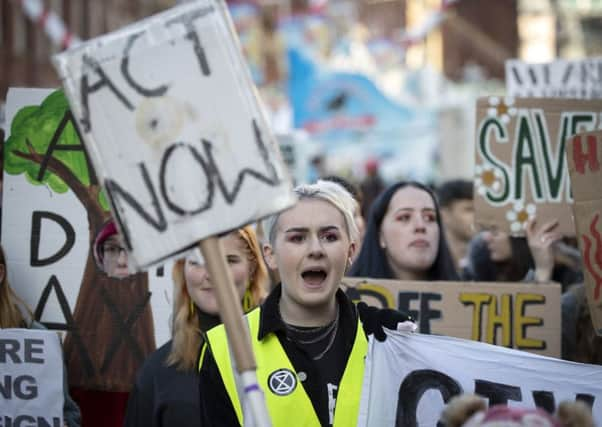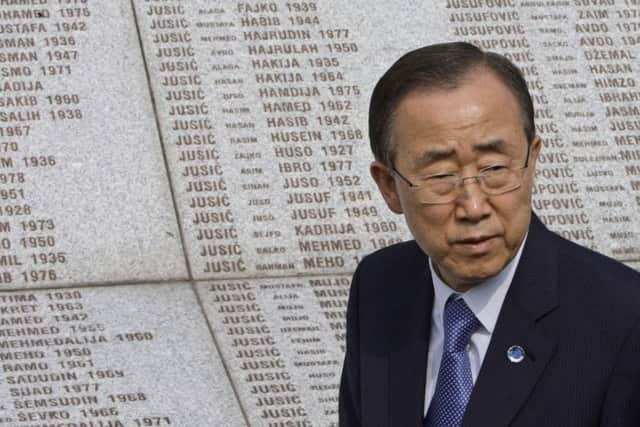State of the world is not as bad as we might think – David Alcock


Most people think that the average life expectancy in the world is about 50 years: it is actually 70. And the average number of babies per woman in the world is less than 2.5 – and falling.
Advertisement
Hide AdAdvertisement
Hide AdThe body which carried out this research – Swedish non-profit organisation Gapminder – argue that the way we see the world is systematically negative. I agree, and although the UK is in a period of uncertainty, social and economic conditions around the world are not as bad as many of us think.


For instance, as the last United Nations Secretary General Ban Ki-moon explained, the Millennium Development Goals (2000-2015) “helped to lift more than one billion people out of extreme poverty, to make inroads against hunger, to enable more girls to attend school than ever before and to protect our planet”.
Two trends which may surprise you are that between 1990 and 2015, in the developing world, the proportion of undernourished people and people who lack access to improved sources of water, both almost halved.
Of course, the claim that ‘the world is getting better’ is subject to caveats. In environmental issues, most notably in relation to climate change, there are considerably fewer grounds for optimism. And in many parts of the world, at certain times, social and economic conditions have declined. Nevertheless, in the long term, there is evidence to back up a more hopeful worldview.
Advertisement
Hide AdAdvertisement
Hide AdHowever, progress can be unappreciated, ignored, disbelieved or taken for granted. So why are we so pessimistic about the world? Psychology plays a key role: we are biased towards findings that confirm what we already believe, we react more to negative news than to positive stories, and we tend to base our views and decisions on the information which comes to our mind most readily.


Nostalgia is also to blame: we often wear rose-tinted spectacles, remembering the best bits and forgetting the worst parts. Much as we would like to believe otherwise, we are also susceptible to stereotyping (it is hard to shift our preconceptions of people and places) and, as social creatures, we often like to ‘fit in’ with what our peers believe. Most of us also have limited experience of living in a developing country and therefore do not see the changes that are happening.
Editors and creators of news content know that their readers are much more likely to react to negative and dramatic stories that chime with their psychological biases, rather than reading about positive, common, and gradual trends. When was the last time you read ‘137,000 people escaped extreme poverty today’? This could have been a headline every day for the last 25 years!
Education has a role too. Our teachers are subject to the same biases as anyone else, and they may be conveying information that was inaccurate when they first studied it! Education – especially in the humanities – tends to focus on unusual and engaging topics such as hazards, wars and other crises, at the expense of accurate contextualising and studying progressive milestones.
Advertisement
Hide AdAdvertisement
Hide AdIn a world drenched with information and riddled with opinions, how can we assemble an accurate worldview?
The first stage is to recognise our inbuilt biases and to question where our beliefs come from. One way to do this, as the psychologist Bobby Duffy suggests, is to “accept the emotion but challenge the thought”. Simultaneously, we can question the information you receive. Then we can sit back and try to see past the headlines to put together ‘the big picture’.
A tougher task is to try to ‘unfilter’ our world. Online, we live in a ‘filter bubble’. We reinforce this by liking and sharing opinions: this results in an ‘echo chamber’ effect whereby posts by people whose comments we have liked in the past come higher up in our feed; this can reinforce distorted worldviews.
Instead, we could try to overcome this by reading articles by commentators who don’t share our opinions. Finally, we can seek out more evidence about global trends.
Advertisement
Hide AdAdvertisement
Hide AdI urge my students to take time to deliberate before they come to an opinion, and I also ask them to be willing to change their mind on an issue.
How far can you push yourself to challenge your worldview as we begin a new decade when the environment will be to the fore?
David Alcock teaches Geography at Bradford Grammar School. He is taking part in a forum at the Carriageworks Theatre on January 8.